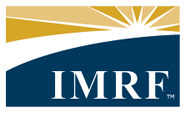Salary spiking to increase pensions
September 10, 2010
On August 16, 2011, the governor signed Senate Bill 2149 (Public Act 97-0429) and House Bill 3334 (Public Act 97-0415) into law.
Please share this General Memorandum
with your Finance Director and Governing Body
You may be aware of recent news stories covering local units of government that have spiked salaries which resulted in padding a members IMRF pension. Reporters across the state are uncovering cases where employers colluded with employees to increase the pensions of highly compensated executives. For example,
- Former Bellwood administrator Roy McCampbell received dramatic, late-career pay hikes that increased his pension to $252,689 a year.
- Retired Park District of Highland Park executive director Ralph Volpe received $270,999 in bonuses in 2008, increasing his pension to $166,332 a year.
The media reported heavily on both of these salary-spiking cases. As of yet, there has been no consequence to the news of Mr. McCampbells pension. In Highland Park, however, three trustees from the Park District board including the Board president resigned under pressure from local taxpayers.
Chicago Tribune story soon to be published
Recently, IMRF has been the subject of several interviews by reporters from the Chicago Tribune. The Tribune will soon publish a story on salary spiking and subsequent pension padding by municipalities. In the story, the reporters will explain how it is done and how much it costs taxpayers. Specific units of government may be identified.
Based on its calculations, the Chicago Tribune estimates that over the past 10 years, salary spiking at IMRF employers has cost taxpayers approximately $145 million.
The Illinois Pension Code currently has limited provisions to reduce the effect of salary spiking. We knew anecdotally that a few employers spiked salaries. However, the Tribunes work revealed that the practice is more widespread than we believed.
Salary spiking negatively impacts an employers funded status with IMRF, threatens to jeopardize defined benefits plans for all public employees, and undermines the reputation of IMRF.
Media scrutiny will increase
Longer term, we expect media scrutiny of local compensation practices to increase after the Chicago Tribune story is published. As you have seen with pension stories from other states, its also possible that the Chicago Tribune story will be picked up by other news organizations and published in newspapers across the country.
As a result of the work done by the Chicago Tribune, the IMRF Board of Trustees will be discussing what steps, if any, IMRF can take to reduce salary spiking in the future. We also understand the Illinois House Personnel & Pensions Committee may hold hearings in October to look into local government pension practices, including the impact of large, late-career pay increases on final pensions.
Feeds pension envy
IMRF employers are in the best position to reduce salary spiking. Not only does salary spiking burden the taxpayers of the local unit of government with high salary costs immediately and high retirement costs over the long term, it demonstrates a lack of understanding by governing boards of the long-term fiscal consequences of their actions.
Salary spiking feeds pension envy by the taxpaying public and may result in action by the General Assembly to scale back benefits for current members. It is in everyones best interest to stop salary spiking now.
Sincerely,
Louis W. Kosiba
IMRF Executive Director

